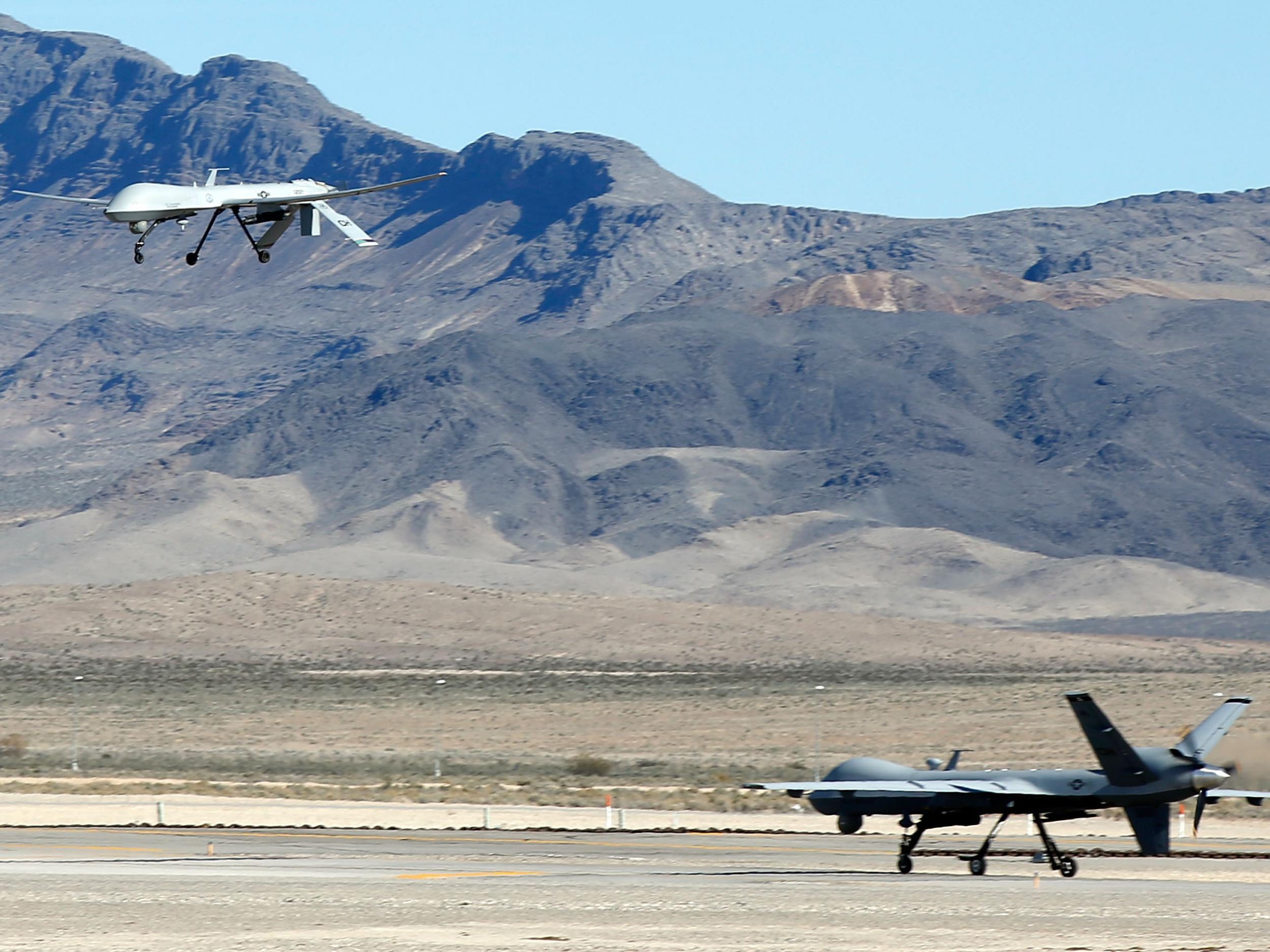Indian Prime Minister meets Donald Trump to seal drone deal in effort to curb Chinese influence in Asia
Narendra Modi reportedly wants unmanned aircraft for surveillance of Indian Ocean

Your support helps us to tell the story
From reproductive rights to climate change to Big Tech, The Independent is on the ground when the story is developing. Whether it's investigating the financials of Elon Musk's pro-Trump PAC or producing our latest documentary, 'The A Word', which shines a light on the American women fighting for reproductive rights, we know how important it is to parse out the facts from the messaging.
At such a critical moment in US history, we need reporters on the ground. Your donation allows us to keep sending journalists to speak to both sides of the story.
The Independent is trusted by Americans across the entire political spectrum. And unlike many other quality news outlets, we choose not to lock Americans out of our reporting and analysis with paywalls. We believe quality journalism should be available to everyone, paid for by those who can afford it.
Your support makes all the difference.Donald Trump is expected to authorise the sale of $2bn (£1.6bn) worth of surveillance drones to India.
The US President met India’s Prime Minister Narendra Modi for the first time this week – an encounter watched closely by analysts for clues of the depth of ties the new US administration seeks.
Both trade and defence ties were heavily bolstered under US President Barack Obama, but policy differences between Mr Trump’s administration and New Delhi have thrown the future of the relationship into question.
India initiated its request to buy 22 Guardian MQ-9B unmanned aircraft for maritime surveillance last year.
Mr Modi reportedly wants the drones for surveillance of the Indian Ocean — waters that China's navy increasingly traverses after establishing its first overseas base in the Horn of Africa nation of Djibouti.
India's neighbour Pakistan would likely be opposed to the drone sale.
So far in his presidency, Mr Trump has focused on outreach to China, India's strategic rival, as he looks for help to rein in North Korea. But both Washington and New Delhi share concerns about China's growing military presence in the region.
India does not have a formal alliance with the US, but defence ties have intensified in recent years with joint drills between the two militaries and defence sales.
The South Asian nation, which has traditionally bought most of its defence equipment from Russia, is looking to upgrade its capabilities.
Since 2008, India has signed more than $15bn (£11.8bn) in US defence contracts, including for C-130J and C-17 transport aircraft, P-8I maritime patrol aircraft, Harpoon missiles and Apache and Chinook helicopters.
Ashley Tellis, an expert on South Asia at the Carnegie Endowment for International Peace, said last week that the US decision to offer the Guardian aircraft to India is significant as the UN has a standing policy of declining export of such advanced drones, unless they are going to countries involved in combined operations with US forces.
Mr Modi's visit to the US is likely to be low key, compared to when Mr Obama was in office and is aimed at building a personal bond between the two leaders.
Mr Modi will be the first foreign dignitary to be hosted for dinner at the White House during Mr Trump's presidency.
Both leaders share a populist streak and a knack for using social media. They are also likely to find common ground on combating Islamic extremism.
Mr Modi will likely urge a tougher stance on Pakistan over militants that India blames for attacks on its territory.
But there could be increased strains on trade issues. India is among nations singled out by the Mr Trump's administration for their trade surpluses with the US, which in India's case came to $30.8bn (£24.2bn) in 2016.
New Delhi is also closely watching the administration's review of the H1B visa program, under which thousands of skilled Indian workers come to the US.
New Delhi was also irritated by Mr Trump's decision to pull out of the Paris climate accord.
Announcing the decision, the US president said New Delhi had made its participation “contingent on receiving billions and billions and billions of dollars in foreign aid.”
India denies that and said it will continue to be part of the accord, regardless of US participation.
Associated Press contributed to this report
Join our commenting forum
Join thought-provoking conversations, follow other Independent readers and see their replies
Comments